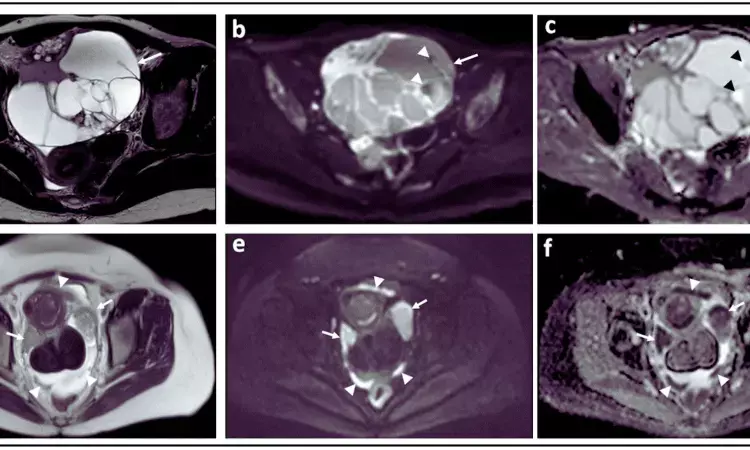- Home
- Medical news & Guidelines
- Anesthesiology
- Cardiology and CTVS
- Critical Care
- Dentistry
- Dermatology
- Diabetes and Endocrinology
- ENT
- Gastroenterology
- Medicine
- Nephrology
- Neurology
- Obstretics-Gynaecology
- Oncology
- Ophthalmology
- Orthopaedics
- Pediatrics-Neonatology
- Psychiatry
- Pulmonology
- Radiology
- Surgery
- Urology
- Laboratory Medicine
- Diet
- Nursing
- Paramedical
- Physiotherapy
- Health news
- Fact Check
- Bone Health Fact Check
- Brain Health Fact Check
- Cancer Related Fact Check
- Child Care Fact Check
- Dental and oral health fact check
- Diabetes and metabolic health fact check
- Diet and Nutrition Fact Check
- Eye and ENT Care Fact Check
- Fitness fact check
- Gut health fact check
- Heart health fact check
- Kidney health fact check
- Medical education fact check
- Men's health fact check
- Respiratory fact check
- Skin and hair care fact check
- Vaccine and Immunization fact check
- Women's health fact check
- AYUSH
- State News
- Andaman and Nicobar Islands
- Andhra Pradesh
- Arunachal Pradesh
- Assam
- Bihar
- Chandigarh
- Chattisgarh
- Dadra and Nagar Haveli
- Daman and Diu
- Delhi
- Goa
- Gujarat
- Haryana
- Himachal Pradesh
- Jammu & Kashmir
- Jharkhand
- Karnataka
- Kerala
- Ladakh
- Lakshadweep
- Madhya Pradesh
- Maharashtra
- Manipur
- Meghalaya
- Mizoram
- Nagaland
- Odisha
- Puducherry
- Punjab
- Rajasthan
- Sikkim
- Tamil Nadu
- Telangana
- Tripura
- Uttar Pradesh
- Uttrakhand
- West Bengal
- Medical Education
- Industry
DWI-MRI helpful for pre-operative evaluation of patients with ovarian cancer

China: A recent study published in Gynecologic Oncology has shown that diffusion-weighted MRI (DWI-MRI) is a good technique for selecting ovarian cancer patients eligible for primary debulking surgery.
"Patients with predictive score 0–5 were suitable for primary debulking surgery at our institution," Zheng Feng, Fudan University Shanghai Cancer Center, Shanghai, China, and colleagues reported.
Primary debulking surgery is considered the standard surgical treatment strategy for patients with ovarian cancer. Still, neoadjuvant chemotherapy may also be considered for women regarded as poor surgical candidates. For cancer assessment, laparoscopic evaluation has "great diagnostic value", but the authors note that the patients may refuse this strategy due to increased costs and its invasive nature.
Previous studies indicate that DWI-MRI has high accuracy by providing high signal intensities of structures with water movement restriction and "almost no" signal from other anatomical structures. Past studies also suggest this modality has higher diagnostic accuracy than CT for ovarian cancer assessment.
Against the above background, the research team aimed to investigate the value of diffusion-weighted magnetic resonance imaging in selecting ovarian cancer patients suitable for primary debulking surgery.
For this purpose, the researchers enrolled patients with suspected ovarian cancer who underwent preoperative DWI/MR between 2020 and 2022. The participants received a preoperative clinic-radiological assessment based on the Suidan criteria for R0 resection with a predictive score. They prospectively recorded data for patients with primary debulking surgery. Calculation of diagnostic value was done with ROC curves, and they also explored the cut-off value for the predictive score.
The study revealed the following findings:
· The final analysis included 80 patients with primary debulking surgery.
· Most patients (97.5%) were at an advanced stage (III-IV), and 90.0% had high-grade serous ovarian histology.
· 57.5% of patients had no residual disease (R0), and 33.8% had optimal debulking surgery with macroscopic disease less than or equal to 1 cm (R1).
· Patients with BRCA1 mutation had a lower R0 resection rate and higher R1 resection rate than wild-type patients (42.9% versus 63.0%, 50.0% versus 29.6%, respectively).
· The median predictive score was 4, and the AUC for R0 resection was 0.742.
· The R0 rates for patients with predictive scores 0–2, 3–5, and ≥ 6 were 77.8%, 62.5% and 23.8%, respectively.
"DWI/MR was a sufficient technique for preoperative assessment of ovarian cancer," the researchers wrote. "Patients with predictive score 0–5 were eligible for primary debulking surgery at our institution."
They noted that multi-centre cooperation is still required to establish the general criteria. Still, they highlighted that this personalized approach using DWI-MRI and laparoscopic findings criteria could successfully triage ovarian patients into different treatment approaches with elevated radical resection rates.
Reference:
Feng Z, Fu Y, Li R, Li H, Lu J, Chen X, Ju X, Wu X, Wen H. Diffusion-weighted magnetic resonance imaging for the preoperative evaluation of epithelial ovarian cancer patients. Gynecol Oncol. 2023 May 17;174:142-147. doi: 10.1016/j.ygyno.2023.03.014. Epub ahead of print. PMID: 37207498.
Dr Kamal Kant Kohli-MBBS, DTCD- a chest specialist with more than 30 years of practice and a flair for writing clinical articles, Dr Kamal Kant Kohli joined Medical Dialogues as a Chief Editor of Medical News. Besides writing articles, as an editor, he proofreads and verifies all the medical content published on Medical Dialogues including those coming from journals, studies,medical conferences,guidelines etc. Email: drkohli@medicaldialogues.in. Contact no. 011-43720751


